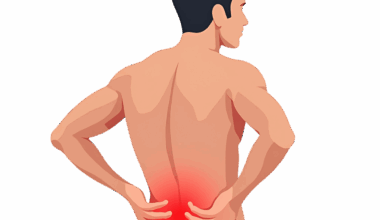Mindfulness Practices to Support Addiction Recovery
Addiction recovery is an intricate journey, and incorporating mindfulness into daily life can significantly enhance the process. Mindfulness helps individuals to cultivate awareness of the present moment, allowing them to make conscious choices rather than fall back into past habits. Engaging in consistent mindfulness practices reduces stress and cravings, creating a supportive environment where healing can thrive. Practices such as meditation, breathing exercises, and mindful walking can provide a mental sanctuary during challenging times. Additionally, focusing on one’s thoughts and feelings without judgment can promote self-acceptance. Many recovering individuals find community support helpful; joining mindfulness groups encourages accountability while practicing techniques that foster relaxation and awareness. Individuals can develop coping strategies and resilience through shared experiences. Online resources, such as guided meditations and instructional videos, can supplement traditional recovery programs. Ultimately, mindfulness creates a space for gratitude and positive reinforcement, enhancing overall well-being during recovery. Utilize these techniques to foster self-compassion and a stronger commitment to sobriety.
Breath Awareness Techniques
One of the simplest yet most effective mindfulness practices is breath awareness. When recovering from addiction, acknowledging one’s breath can ease tension and anxiety. A recommended practice is the 4-7-8 technique, where individuals inhale for four seconds, hold for seven seconds, and exhale for eight seconds. This rhythmic pattern can calm the mind, allowing a moment of tranquility amidst chaos. Breath awareness fosters grounding in the present moment, guiding the practitioner to recognize their thoughts and emotions without being overwhelmed. Additionally, incorporating breath awareness into daily routines reinforces a sense of stability and self-control. Practicing this technique during moments of cravings provides an opportunity to redirect focus toward breathing, creating space between impulse and action. Organizations like the Meditation Society offer online resources and workshops dedicated to breath work, facilitating a deeper understanding of this technique. To enhance recovery, create a dedicated breathing space at home, perhaps with calming visuals or scents. Regularly practicing breath awareness during the recovery journey strengthens resilience and fosters deeper connections with oneself.
A mindfulness journal is a powerful tool for those in recovery. Keeping a daily journal allows individuals to process their experiences and emotions in a constructive manner. Each entry can explore feelings, challenges, and insights related to their journey, promoting self-reflection and growth. Additionally, writing about daily mindfulness practices reinforces commitment to the recovery process. Journalling can also serve as an emotional outlet, helping to alleviate stress and anxiety. Individuals may choose to include gratitude lists, showcasing their evolving perspective on life. Celebrating small wins, like attending a meeting or completing a mindful activity, builds motivation and fosters a sense of accomplishment. To enhance this practice, one can dedicate time each evening to reflect upon the day’s events. Incorporating prompts to write about challenges faced and how mindfulness helped navigate these obstacles encourages further development. Many find solace in reading past entries, noticing patterns of progress over time. Additionally, creating a soothing writing environment, perhaps with soft lighting and calming music, can further enhance the journaling experience, making it an integral part of recovery efforts.
Mindful Movement Practices
Incorporating mindful movement into a recovery routine can significantly enhance emotional and physical well-being. Practices such as yoga, tai chi, or even mindful walking promote awareness of body sensations and thoughts while moving. These practices help build a deep connection between the mind and body, fostering a sense of control and stability. For those struggling with addiction, engaging in mindful movements can serve as an excellent alternative to destructive habits. Participating in classes at local studios or accessing online resources can provide guidance for beginners. Establishing a regular practice can help individuals become more attuned to their bodies and emotions, building resilience against triggers. Mindful movement encourages self-exploration, helping to identify areas of tension or discomfort. As practitioners learn to listen to their bodies, they also discover new, healthier ways of coping with stress. Creating a mindful movement routine with gentle stretches or breath-focused exercises makes nurturing oneself possible. A balance between strength and flexibility leads to both mental clarity and released tension, proving invaluable during recovery.
Mindful eating is a powerful practice that can support the recovery process from addiction. This approach encourages individuals to savor each bite, fostering appreciation for nourishment and the act of eating itself. Engaging in mindful eating can help combat emotional triggers that often lead to substance abuse. To practice mindfulness while eating, individuals should minimize distractions by turning off the television or putting away phones. Focusing on the colors, textures, and flavors of each food item promotes a deeper connection with the meal. Additionally, taking time to acknowledge hunger cues can enhance body awareness and foster a healthy relationship with food. By savoring every bite, individuals can learn to appreciate the impact of nourishment on their overall well-being. This practice can also help regulate eating patterns and prevent binge eating or emotional eating. Many recovery programs incorporate mindful eating techniques into their plans, as it fosters a sense of control over one’s body. Consider incorporating mindful eating into daily routines to develop healthier habits and reinforce a positive mindset during the recovery journey.
The Power of Nature
Nature can play a fundamental role in mindfulness and addiction recovery. Spending time outdoors promotes relaxation, reduces stress, and fosters a sense of connection with nature and oneself. Concepts like forest bathing, where individuals immerse themselves in a natural environment, have gained popularity for their countless benefits. To incorporate nature into mindfulness practices, take regular walks in local parks or gardens, allowing the soothing sounds and sights of the outdoors to ground you. Engage all the senses by noticing the rustle of leaves, the warmth of the sun, or the scent of blooming flowers. Creating a balance between indoor and outdoor mindfulness practices can help build emotional resilience. Many individuals find that nature enhances their meditation experiences, providing an environment conducive to self-reflection. Whether sitting by a stream or hiking a mountain, nature offers a unique opportunity to recharge and reconnect with oneself. Setting aside time for nature walks can also serve as a meditation practice, reinforcing awareness and appreciation for the environment around us. Consider embracing nature as a vital component of your recovery journey.
Mindfulness practices offer robust support throughout the journey of addiction recovery. Incorporating these techniques promotes emotional resilience and stability, helping individuals navigate challenges with a calm and centered mindset. Practices such as breath awareness, mindful journaling, and movement create a comprehensive approach to healing. Mindful eating fosters a healthy relationship with food, encourages self-awareness, and promotes emotional well-being. Additionally, embracing nature builds stronger connections with oneself and the world. Individuals can cultivate a greater sense of purpose through these practices, reinforcing commitment to their recovery and personal growth. By combining various mindfulness techniques, each person can tailor their approach to meet their unique needs. Adopting these practices into daily routines allows for more significant moments of clarity and gratitude in life. Ultimately, embracing a mindful lifestyle increases self-acceptance and nurtures resilience against triggers, significantly enhancing the recovery journey. As individuals continue to hone their mindfulness skills, their ability to cope with stress and navigate challenges strengthens. A commitment to mindfulness in daily life can pave the way for lasting, positive change and a successful recovery.





